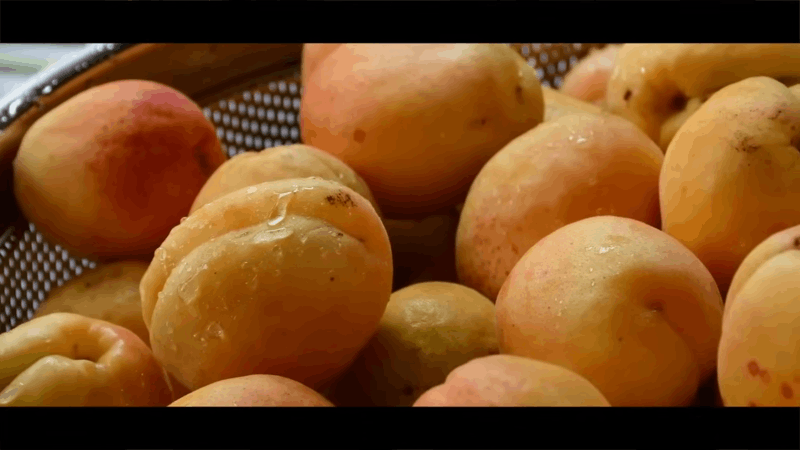No products in the cart.
“Can dogs eat apricots?” This question often arises among dog owners curious about expanding their pet’s dietary options. As responsible caretakers, understanding the compatibility of certain foods with our canine companions is so important.
In this blog, we will explore the topic of whether apricots are safe for dogs to consume, get more information about the potential benefits, risks, and considerations involved in introducing this fruit into their diet.
Apricots for Dogs and What Should be Considered?

It cannot be denied that apricots offer nutritional benefits, including vitamins and antioxidants, however, when it comes to apricots for dogs, it is important to consider portion sizes, preparation techniques, and any potential risks involved. And pet owners should introduce them gradually and monitor their furry friends for any adverse reactions. Removing the pit before feeding and ensuring that apricots are ripe and fresh can help minimize risks. Consulting with a veterinarian is advisable to ensure apricots are suitable for your dog’s diet and to address any concerns.
Potential Benefits of Apricots for Dogs
The potential benefits of apricots for dogs encompass a range of advantages, offering a wholesome addition to their diet.
- Nutritional boost: Apricots are rich in vitamins A and C, which can support immune function and contribute to overall health.
- Antioxidant properties: The antioxidants found in apricots may help combat free radicals and reduce the risk of chronic diseases.
- Improved skin and coat health: The vitamins and minerals in apricots can promote healthy skin and a shiny coat in dogs.
- Digestive health: The fiber content in apricots may aid digestion and regulate bowel movements in dogs.
Incorporating apricots into your dog’s diet, in moderation and under the guidance of a veterinarian, can offer these potential benefits while enhancing their overall well-being.
Risks Associated with Feeding Apricots to Dogs
The spectrum of risks associated with feeding apricots to dogs encompasses several potential hazards that dog owners should be vigilant about.
- Toxicity from apricot pits: Apricot pits contain cyanide compounds, which can be harmful or even fatal to dogs if ingested.
- Gastrointestinal upset: The high sugar and fiber content in apricots may cause digestive issues such as diarrhea or stomach upset, particularly if consumed in large quantities.
- Allergic reactions: Some dogs may be allergic to apricots, leading to symptoms such as itching, swelling, or difficulty breathing.
- Obstruction hazard: The pit of the apricot poses a choking hazard and may cause intestinal blockages if swallowed whole.
If you have any concerns about the safety or potential risk of apricots for dogs, please monitor their intake of this fruit and consult with a veterinarian soon.
Factors to Consider Before Feeding Apricots to Dogs
Before feeding apricots to dogs, several factors should be carefully considered:
- Portion size: Determine an appropriate portion size based on your dog’s size, weight, and dietary needs. Overconsumption can lead to digestive issues and potential health risks.
- Preparation methods: Always remove the pit before offering apricots to your dog, as apricot pits contain cyanide compounds that can be toxic if ingested. Additionally, ensure that the apricots are ripe and fresh.
- Allergies and sensitivities: Be aware of any potential allergies or sensitivities your dog may have to apricots. Monitor for any adverse reactions, such as itching in dogs, swelling, or gastrointestinal upset, after introducing apricots into their diet.
- Veterinary guidance: Consult with your veterinarian before adding apricots to your dog’s diet, especially if your dog has any underlying health conditions or dietary restrictions.
- Moderation: While apricots can offer nutritional benefits, they should be given to dogs in moderation. Digestive issues, weight gain, or other health problems may be the results of the excessive consumption.
To incorporate apricots into your dog’s diet safely and promote their overall health, please consider these factors and take appropriate precautions carefully.
Can Dogs Eat Apricots?

Dogs can enjoy apricots as part of their diet, albeit with certain precautions. Apricots offer valuable nutrients like vitamins A and C, alongside dietary fiber, which can contribute positively to a dog’s health.
However, it’s vital to be mindful of potential hazards, particularly the apricot pit, which contains cyanide compounds. Therefore, always ensure to remove the pit before offering apricots to your furry friends. Additionally, be cautious about the sugar content in apricots, as excessive consumption may lead to digestive issues or unwanted weight gain. In essence, while apricots can be a delightful and nutritious treat for dogs, moderation and careful preparation are key to their safety and enjoyment.
Are Apricots Safe for Dogs?

When introduced responsibly, apricots can be a safe and enjoyable addition to a dog’s diet. Despite the fact that apricots contain critical elements that are good to canine health, such as vitamins A and C, owners should be aware of the potential risks involved. The apricot pit is the most dangerous since it contains cyanide and can be toxic to dogs if swallowed.
To reduce this risk, remove the pit before feeding apricots to your pet. Furthermore, keep an eye out for any unpleasant reactions in your dog, particularly gastrointestinal discomfort or allergic responses. Apricots can be safely added to your dog’s diet with caution and moderation, enhancing their gourmet experiences while prioritizing their well-being.
Can Apricots Cause Diarrhea in Dogs?
Dogs may have diarrhea from apricots, mostly because of their high fiber and sugar content. While small amounts may be tolerated well by some dogs, excessive consumption can upset the digestive system, leading to loose stools.
It’s crucial to introduce apricots gradually into your dog’s diet and monitor their reaction. Remember to remove the pit before feeding apricots to your dog, as it contains cyanide compounds that can be harmful. If your dog has diarrhea after eating apricots, talk to your veterinarian about how to manage their diet and any therapy that may be required.
Apricots and Dogs: Signs of Apricot Toxicity in Dogs
Apricot poisoning in dogs can present with a variety of signs and symptoms. If a dog ingests apricot pits or consumes large amounts of apricot flesh, it may exhibit signs such as difficulty breathing, dilated pupils, vomiting, diarrhea, weakness, and seizures. These signs suggest cyanide poisoning, as apricot pits contain poisonous cyanide compounds to dogs.
See a veterinarian right away if you think your dog may have eaten apricot pits or is showing any symptoms of apricot poisoning. Early detection and treatment of canine cyanide poisoning are critical for success.
Conclusion
“Can dogs eat apricots?” This question prompts crucial considerations for pet owners. While apricots offer potential health benefits, including vitamins and fiber, it’s essential to approach their consumption with caution.
By understanding risks, such as cyanide toxicity from pits, and implementing precautions like removing pits and offering them in moderation, pet owners can ensure their furry companions’ safety. Consulting with a veterinarian for personalized advice is recommended when incorporating apricots into a dog’s diet.
Hello, I am Hazel Bennett, an experienced copywriter specializing in the fascinating topic of CBD for dogs. With a passion for pet wellness and extensive knowledge of CBD’s potential benefits, I am here to provide you with informative and engaging content.



